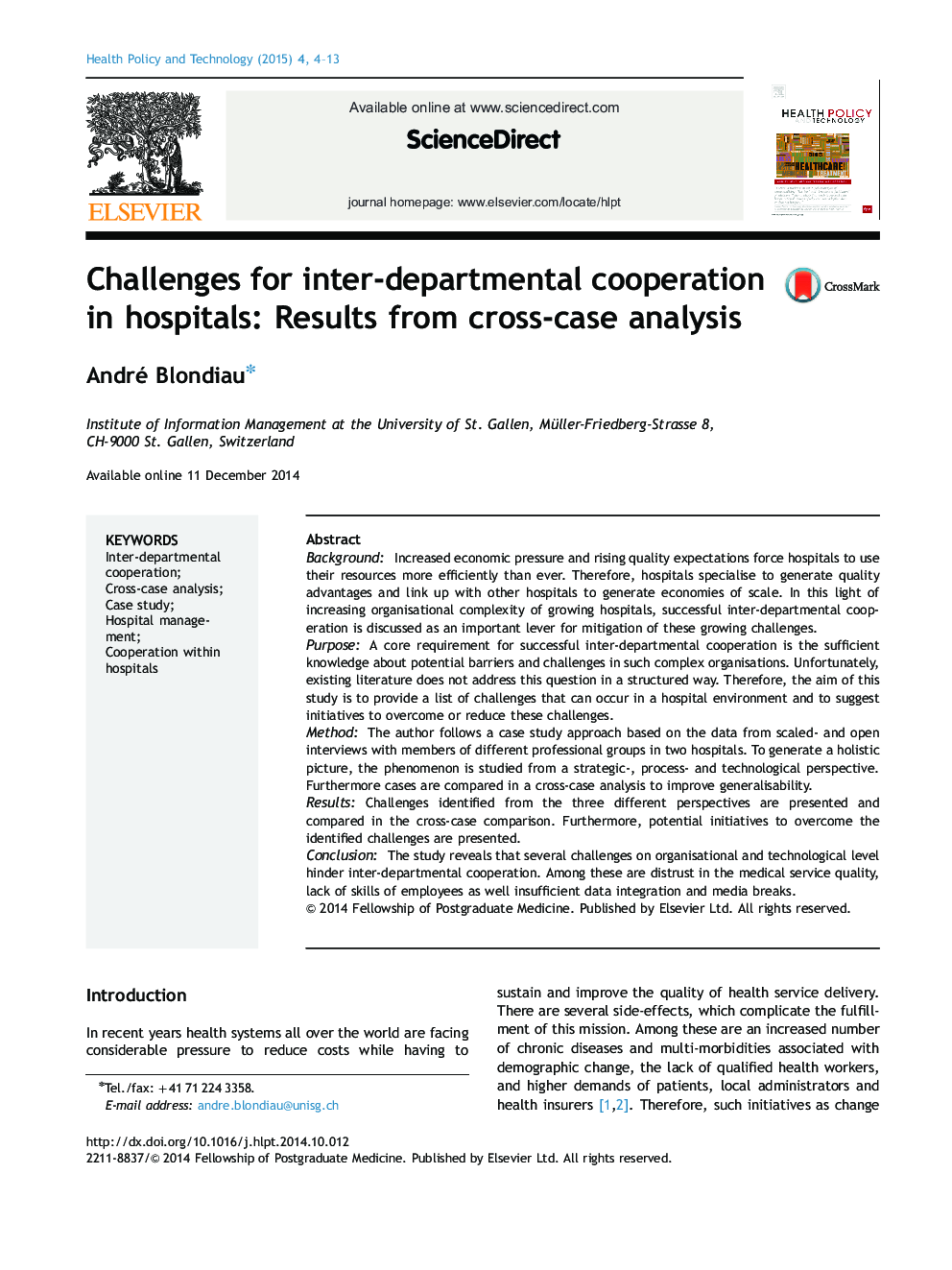| Article ID | Journal | Published Year | Pages | File Type |
|---|---|---|---|---|
| 3327242 | Health Policy and Technology | 2015 | 10 Pages |
•We compare two hospital cases from Germany regarding challenges for inter-departmental cooperation in these hospitals.•We identify success factors for cooperation on management, process and technological level.•Reliable medical service quality of the cooperating departments is perceived as most important factor to build trust among the cooperating partners.•Internal medical quality and quality of support are perceived as most important factors on process level.•Data integration, and compatibility are perceived as most important technological factors for cooperation.
BackgroundIncreased economic pressure and rising quality expectations force hospitals to use their resources more efficiently than ever. Therefore, hospitals specialise to generate quality advantages and link up with other hospitals to generate economies of scale. In this light of increasing organisational complexity of growing hospitals, successful inter-departmental cooperation is discussed as an important lever for mitigation of these growing challenges.PurposeA core requirement for successful inter-departmental cooperation is the sufficient knowledge about potential barriers and challenges in such complex organisations. Unfortunately, existing literature does not address this question in a structured way. Therefore, the aim of this study is to provide a list of challenges that can occur in a hospital environment and to suggest initiatives to overcome or reduce these challenges.MethodThe author follows a case study approach based on the data from scaled- and open interviews with members of different professional groups in two hospitals. To generate a holistic picture, the phenomenon is studied from a strategic-, process- and technological perspective. Furthermore cases are compared in a cross-case analysis to improve generalisability.ResultsChallenges identified from the three different perspectives are presented and compared in the cross-case comparison. Furthermore, potential initiatives to overcome the identified challenges are presented.ConclusionThe study reveals that several challenges on organisational and technological level hinder inter-departmental cooperation. Among these are distrust in the medical service quality, lack of skills of employees as well insufficient data integration and media breaks.
